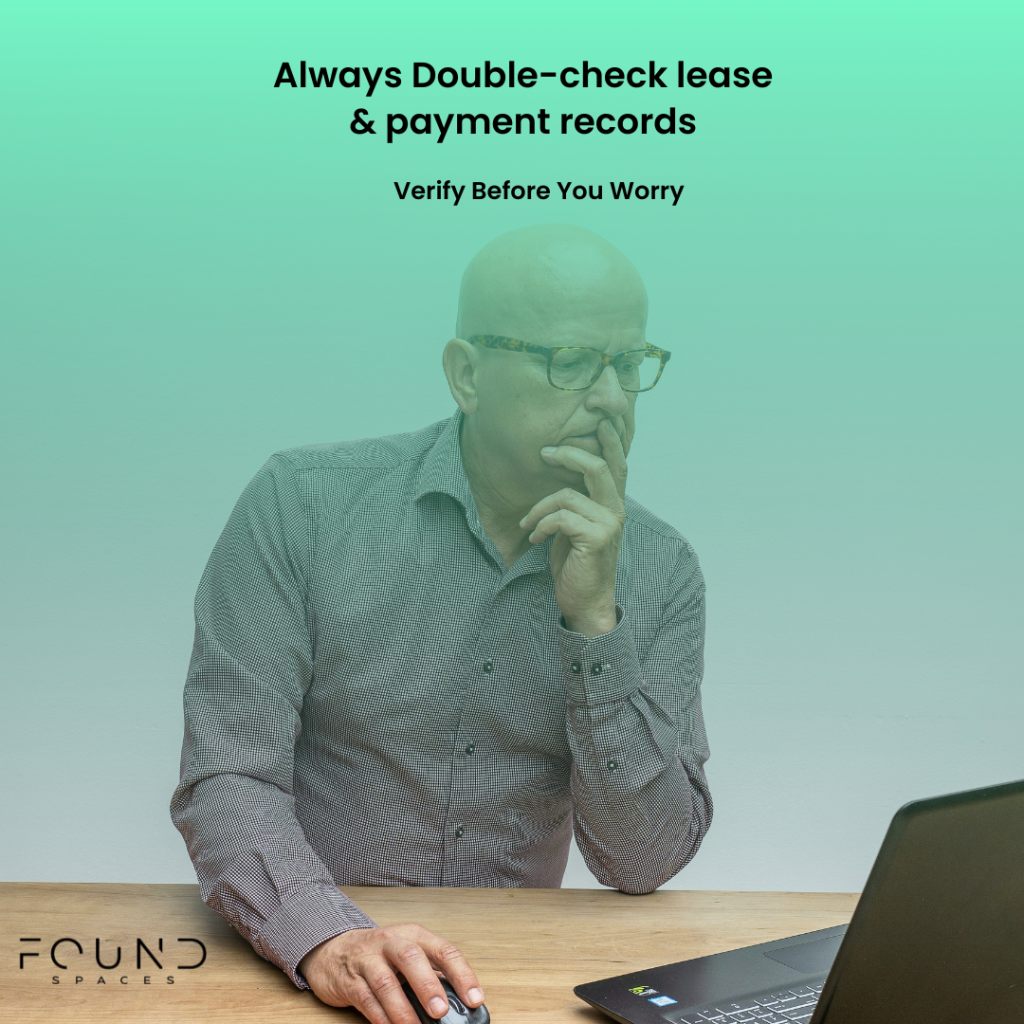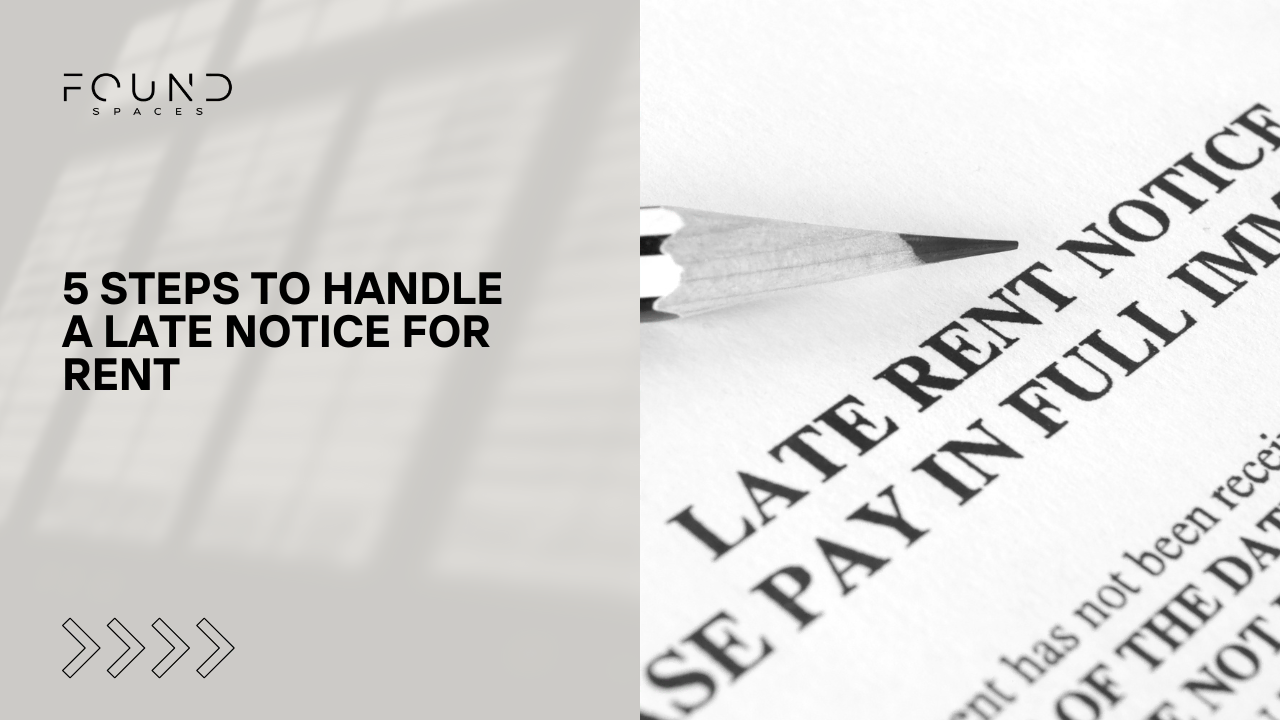Getting a late rent notice can be frustrating. However, before jumping to conclusions, it’s important to pause and check the facts. Start by reviewing your lease agreement and payment records to confirm whether the rent is actually overdue. Sometimes payments are delayed due to processing errors or miscommunications.
If the rent is truly late, send a polite, written notice that clearly outlines the amount owed, any late fees, and instructions for how to pay. If you don’t get a response, follow up with a friendly phone call or email. Offer support if possible, like a payment plan and keep the conversation open.
Most importantly, always stick to your local landlord-tenant laws and document everything. If handling late payments becomes overwhelming, it might be time to bring in a property manager or legal expert to help protect your investment and keep things running smoothly.
1. Check Your Lease and Payment Records Carefully

Start by reviewing the lease agreement to confirm the exact rent due date, any grace period, and late fee terms—including the amount charged and when fees apply. Next, check the tenant’s payment history for any patterns of late or partial payments. Use bank statements or online portals to verify when payments were actually received, and ensure partial payments were properly recorded.
Sometimes delays happen due to banking issues or system errors, so confirm whether a payment was made but hasn’t yet posted. Also, review the payment methods used (e.g., checks, online transfers) to ensure everything is properly tracked. Finally, check for any documented exceptions or prior agreements that could explain the delay.
Keeping clear, organized records of lease terms and payment activity helps you understand the full picture and avoid misunderstandings before taking further action.
| Lease Item | Details to Verify |
|---|---|
| Rent Due Date | Confirm exact due date and any grace period |
| Late Fees | Amounts charged and timing of application |
| Payment History | Patterns or prior late payments |
| Payment Receipt Date | Verify via bank records or payment portals |
| Partial Payments | Whether any have been made and their application |
| Lease Clauses | Impact of late payments on tenancy |
| Processing Delays | Check for delays from banking or system errors |
| Payment Methods | Ensure tracking of checks, online transfers, etc. |
| Exceptions or Arrangements | Agreed upon exceptions documented |
| Record Keeping | Organized lease and payment data for reference |
2. Send a Clear and Friendly Late Rent Notice
When rent is late, your first step should be to send a written notice that’s polite, clear, and easy to understand. State the amount overdue, the original due date, and any applicable late fees—briefly explaining how those fees were calculated. This reinforces transparency without sounding confrontational.
Include straightforward payment instructions (e.g., check, online portal, etc.) and provide a new deadline to encourage prompt resolution. Gently remind tenants of the lease terms regarding rent payments, and keep the tone respectful to avoid creating tension.
Always include your contact information in case the tenant wants to discuss the issue or needs help. To ensure delivery and documentation, send the notice via both email and postal mail.
Example:
“We noticed your rent payment for April hasn’t been received. Please submit the $1,200 payment by April 10 to avoid further late fees. Let us know if you need assistance or would like to discuss options.”
This approach maintains a positive relationship and keeps communication open.
Key Elements of a Good Late Rent Notice:
- Clearly state the overdue amount and original due date
- Specify late fees and how they were calculated
- Offer payment method options and clear instructions
- Set a new payment deadline
- Reference relevant lease terms
- Use polite, straightforward language
- Include your contact details
- Send via email and postal mail
- Avoid legal jargon; keep it simple and respectful
Reach Out to Tenants and Offer Support

If there’s no response to your written notice, follow up with a phone call or email. Politely ask if there’s a reason for the delay, such as financial hardship, and listen with empathy. This can build trust and encourage open dialogue.
Consider offering flexible payment plans to help tenants catch up without feeling overwhelmed. Let them know that early communication helps avoid additional fees or legal steps. If appropriate, provide information on local rental assistance programs.
Always keep a record of all communication and any agreements made. Maintaining a supportive but clear tone helps set expectations while keeping the relationship constructive.
Follow Local Laws and Keep Detailed Records
Understanding your local and state laws is critical when dealing with late rent. Rules around late fees, notice periods, and eviction timelines vary widely, so make sure you’re fully compliant.
Use certified mail or other verifiable delivery methods for official notices, and document every interaction—emails, texts, letters, and phone calls. Keep detailed notes on dates, content, and tenant responses. This documentation is vital if legal action becomes necessary.
Never enforce penalties or initiate eviction proceedings without meeting all legal requirements, including grace periods or any local moratoriums. Regularly review and update your lease terms to align with current laws and avoid disputes.

Get Help from a Professional Property Manager
Handling late rent doesn’t have to be stressful. With the right approach you can resolve most rent issues without conflict. Take control of the process and stay legally compliant by downloading our FREE Late Rent Resolution Flowchart PDF.
And if you’re looking for ongoing peace of mind, Found Spaces is here to help. We handle rent collection efficiently and enforce payment policies fairly. Our team sends timely, legally compliant notices and manages all tenant communication, reducing confusion and delays. We also negotiate payment plans on your behalf and maintain detailed records to protect your legal interests.
At Found Spaces, we stay up to date on local laws, use automated reminders, and offer online payment systems to make rent collection smoother—for you and your tenants.
Partnering with us means less stress, stronger tenant relationships, and more reliable rental income—all while protecting your property’s long-term value.
Frequently Asked Questions
1. What should I do first when I receive a late rent notice?
Start by reviewing the notice carefully to understand what is being asked and check the accuracy of the information, such as the amount owed and the due date. This helps you know exactly where you stand before taking further steps.
2. How can I communicate effectively with my landlord after a late rent notice?
Be clear and respectful when you contact your landlord. Explain your situation honestly, whether you’re facing temporary financial trouble or a delay in payment. Keeping communication open can often lead to more flexible solutions.
3. What options do I have if I can’t pay the rent on time after receiving a late notice?
You might discuss payment plans, partial payments, or other arrangements with your landlord. In some cases, seeking assistance from rental aid programs or local charities can also help manage the payment.
4. How can I prevent a late rent notice from turning into an eviction?
Respond quickly to the notice, communicate proactively with your landlord, and try to make at least partial payments if possible. Understanding your local tenant rights and seeking legal advice when needed can also help protect you from eviction.
5. What records should I keep when dealing with a late rent notice?
Keep copies of the late notice, any communication with your landlord, payment receipts, and any agreements made. Having these documents organized can be useful if there are disputes or legal proceedings later on.




